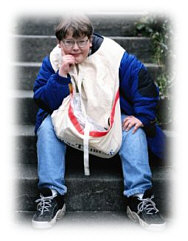Healthy school environments for learning — A different perspective
 A new study just published in the Archives of Pediatrics & Adolescent Medicine confirmed the cautions from Tolerance.org (as reported here ) that many school-based programs to address bullying are ineffective or possibly harmful. But this research also leads to some troubling concerns about the health effects to our children from today’s focus on fatness and what it's teaching them.
A new study just published in the Archives of Pediatrics & Adolescent Medicine confirmed the cautions from Tolerance.org (as reported here ) that many school-based programs to address bullying are ineffective or possibly harmful. But this research also leads to some troubling concerns about the health effects to our children from today’s focus on fatness and what it's teaching them.Researchers at the Indiana University School of Medicine examined 26 studies of school-based anti-bullying programs. “We found many common methods of dealing with the problem, such as classroom discussions, role playing or detention are ineffective,” said co-author, Rachel Vreeman, M.D.. “Whole school interventions involving teachers, administrators and social workers committed to culture change are the most effective and are especially effective at the junior and senior high school level,” she said. Curriculums alone showed no clear reductions in bullying. To address the problem means changing the cultural environment where children study, with everyone being pro-active, speaking out and putting a stop to bullying whenever it is encountered. “As a pediatrician, I see a growing number of children with physical, social and emotional problems, including lower self esteem, that are the result of bullying,” said Dr. Vreeman. It is a complex health problem for children, affecting up to ten percent of kids today, she said. For both sexes, physical bullying peaks at ages 7 to 9 years and by high school involves other forms of malevolent actions. I distinctly remember a young boy whose parents had brought him into the Pediatric clinic thinking he was depressed. The fat 6th grader sat despondently in the corner of the exam room. But he couldn’t tell the busy doctor what was wrong and the doctor never thought to ask about bullying. The doctor simply wrote a prescription for an anti-depressant. Talking with the boy, I found him to be bright and articulate. He admitted to me with tears in his eyes that he was scared to go back to school because of the bullies. He said it was because he was fat but his teachers and school were not doing anything and he felt all alone. He was about to start middle school where he knew kids had guns and knives and he felt unsafe and very vulnerable. Prescriptions for anti-depressants have increased two to three times in children in just the past 15 years, with significantly higher numbers among low income children, according to a 2003 study in Archives of Pediatric & Adolescent Medicine, led by Dr. Julie Magno Zito, associate professor of pharmacy and medicine at the University of Maryland. Another study released last summer in Archives of General Psychiatry examined antipsychotic treatments from the National Ambulatory Medical Care Surveys from 1993 to 2002. It found doctor office visits of children needing antipsychotic treatments increased from 201,000 in 1993 to 1.224 million in 2002, with boys and teens nearly three times more likely than girls to require treatment. Most mental health visits resulting in medications being prescribed were for behavior problems and mood disorders.




<< Home